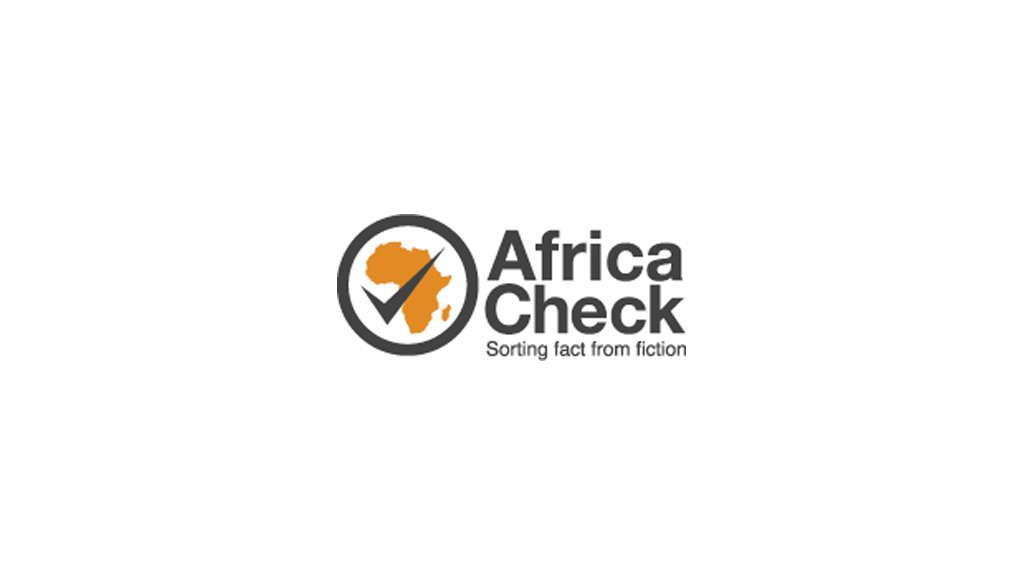Not enough Nigerians are covered by health insurance, central bank governor Godwin Emefiele reportedly said in a May 2021 speech read on his behalf. Improving this would help lower the high cost of access to healthcare services, he said.
To highlight the gap, Emefiele gave two statistics: “According to a study by the World Health Organization, only 4% of Nigerians have access to health insurance.”
He added that “out of pocket expenses on healthcare amount to close to 76% of total healthcare expenditure”.
Is this accurate? We took a closer look.
We asked Osita Nwanisobi, the bank’s acting director for corporate communications who read the speech, for the specific World Health Organization (WHO) study referred to. We will update this report with the response.
According to the WHO, health insurance is when contributions are made by individuals or groups to organisations that buy specified health services on behalf of the members.
Nigeria’s national health insurance scheme (NHIS) defines it as a system designed to pool funds to buy and provide access to quality and affordable personal healthcare services for every Nigerian.
How many Nigerians are covered?
The WHO however does not have data on how many Nigerians are covered by health insurance, spokesperson Andrei Muchnik told Africa Check.
In 2018, former NHIS executive chairperson Yusuf Usman was quoted saying that more than 90% of Nigerians who were eligible were not insured by the scheme. We were however unable to get more data from the NHIS.
The 2018 Demographic Health Survey, a nationally representative survey, does have data on health insurance coverage. It estimated a coverage rate of 3% (3.4% in men and 2.6% in women) in a sample of 55,131 people aged 15 to 59.
There were also regional differences. The southwest geopolitical region recorded a coverage rate of 3.3%, followed by the southeast, at 3.2%. The northeast region had the lowest, at 1.2%.
Respondents were asked if they belonged to mutual health organisations or community-based health insurance (such as state-run schemes), employer-based health insurance, social security or other privately purchased commercial insurance.
People delay treatment because of costs
Affordability and low knowledge of how the scheme works are factors for this low coverage rate, Michael Asuzu, a professor in the college of medicine at the University of Ibadan in southwestern Nigeria, told Africa Check.
"So people delay going to the medical centres because they do not want to pay from their pockets. They stay at home trying to manage high blood pressure until it results in stroke.”
Asuzu said having wide health insurance coverage would increase awareness and consequently the use of these services.
More about Nigeria’s NHIS
The national health insurance scheme was launched in 2005. It describes its model as a “risk-sharing agreement where participants pay a fixed regular amount”.
The funds are then pooled, allowing what are known as health maintenance organisations to pay for those needing medical attention.
The NHIS is open to public and private sector employees and covers their spouses and four children under the age of 18. Students, voluntary contributors, inmates, physically challenged persons, children under five and internally displaced persons are also eligible.
The NHIS, in addition to being an operator, also regulates private players who have to register with it. The scheme currently lists 58 licensed private health insurance providers.
The WHO defines out-of-pocket payments as direct payments made by individuals to healthcare providers at the point of care each time a person is sick.
Data from the international health agency shows what countries spend on health, and what different actors such as the government, insurance companies, households and donors contribute.
As of 2018, out-of-pocket expenses accounted for 76.6% of current health expenditure in Nigeria. This is the cost of healthcare services, not counting capital spending on buildings and the like.
These payments have increased from 71% in 2015 to 77% in 2017, the data showed.
Out-of-pocket expenses can be financially ruinous
This trend is unlikely to reverse quickly, Tanimola Akande, a professor of public health at the University of Ilorin in Kwara state, central Nigeria, told Africa Check.
“Let’s paint a scenario. If someone is to go for a caesarean section and the bill is N150,000 (about US$365) and the person is earning N30,000 ($73), Nigeria’s minimum wage, it can be very difficult to raise that amount,” he said.
If this person took out a loan, they would be pushed into significant financial problems, Akande said. Universal health coverage was supposed to fix this, he added.
Universal health coverage – UN sustainable development goal
In 2015, United Nations member countries agreed to push for universal health coverage by 2030. This was listed as part of its sustainable development goals.
Universal health coverage seeks to make sure that people have “access to quality essential health services; safe, effective, and affordable essential medicines and vaccines; and protection from financial risk”.
The target is to reduce out-of-pocket health expenditure to about 32% in member countries.
But Nigeria is way off achieving this, experts told Africa Check, with low spending on health by the government being a factor.
African governments agreed in 2001 to devote 15% of their budgets to healthcare. Nigeria has not achieved this since.
“So the government is not spending enough and people are not insured enough and the funding must come from somewhere. That is from the individual who is sick and is why the figure [of 77%] is very high,” Akande said.
Written by Oluseyi Awojulugbe, Researcher, Africa Check











